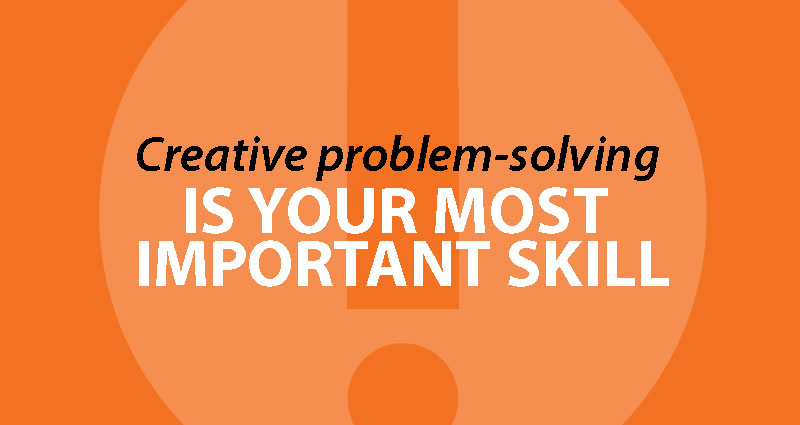
Career lessons from the funny farm
I’ve had an unusual career. After the watermelon farm, and while I was in college and playing in a classic rock band, I also worked full time at a psychiatric hospital for four and a half years. (I didn’t get much sleep, either…)
Like anyone who’s worked in a hospital, I also have an endless store of strange stories. I mostly worked on a locked psychiatric unit, where things were the most unpredictable, so my stories are just a little weirder. (Buy me a beverage sometime and I’ll share a few.)
Since graduating college, I’ve been all mixed up with credit unions, but the lessons I learned from the mental hospital have turned out to be surprisingly useful.
Everyone makes sense to themselves
Maybe this one is a little on the “zen” side, but it’s always been an important part of my worldview. Basically, there’s always some reason people do what they do. Maybe it doesn’t make sense to you, maybe it’s counterproductive, maybe it’s not a very good reason, maybe they don’t even understand it, but people aren’t random. There’s always some reason.
You have to remember this to keep your sense of empathy. Whatever their behavior, everyone deserves human dignity and your best attempts at understanding their goals and struggles.
In the credit union world, we also have to make sense of a lot of human belief and behavior that just doesn’t make logical sense. People are very emotional and downright superstitious about money.
Some people have real problems
I worked with people every day with broken brains. Addiction, homelessness, dementia, hallucinations, depression, psychosis and worse, we saw it all.
Sure, I had class worries, girlfriend woes, my car was a rusted heap and I never seemed to get enough sleep, but I had no reason to complain. My brain works pretty well, and I’ve always been grateful.
That sense of proportion and perspective has come in handy many times since. There’s really not much, if anything, in credit union marketing that constitutes a personal crisis worth panicking over.
Humor has value
To survive an intense job like that, the first thing you have to develop is a robust sense of humor. It’s how you protect yourself. Learn to relax, to deflect, and to see the funny side. It’s a valuable skill, not just goofing around.
Same for the rest of life and any other job. If you take yourself and your job too seriously, you’re going to be a miserable stick in the mud, burn out fast, and make everyone else miserable. Relax and find ways to have fun and enjoy the people you work for and work with. Joy is important, wherever you find it.
Learn to think sideways
Sure, credit union marketing takes a lot of creativity in terms of writing, concepts, and such, but creative problem-solving is the most important skill in just about every job. How can you put yourself in someone else’s shoes, see a problem from a few different sides, and work toward a solution?
I’ll indulge in one story. One day, the police showed up with a VERY large, VERY angry, and VERY delusional man who was causing some disruption downtown. He was convinced he was Jesus. You know, THE Jesus. This is actually very common, as delusions go.
After talking to him a bit, I learned the one thing that he was most angry about was that everyone kept calling him by a different name, the name on his ID. He was Jesus, and he simply would not stand for being called anything else. This was a bit of a pickle; we weren’t supposed to engage with delusions, but confronting delusions never did any good either.
So I tried something sideways. “Welllllllll, people might get a little freaked out and intimidated if we just straight-up call you Jesus Christ. It’s sort of unexpected, you know.” After a few rounds of negotiation, we arrived at a simple solution we could both live with. We would address him as “J.C.” and he would behave in a more peaceful and loving way.
And lo, it came to pass.
We had no further trouble, and after some time back on his medication, we were able to start using his real name and send him home soon after.
Think outside yourself
One of the most valuable skills I got daily practice in at the hospital is the ability to glimpse the world from another person’s perspective.
This isn’t some mysterious super power; perspective shifting is a skill just about anyone can learn and improve. For example, one of the techniques we use in our credit union marketing work is “characterization“; we develop fictional characters with names, backstories and personalities to help us target the needs of specific markets.
Of course, not everyone has been lucky enough to work in a psychiatric hospital or a watermelon farm. But whatever your life and career path, there are always lessons you can take with you and use every day.
- CU Numbers Need Marketing Love, Too - April 2, 2024
- Will it blend? The only CU fintech question that matters. - February 13, 2024
- Solving the CU marketing “now what?” problem - January 16, 2024
